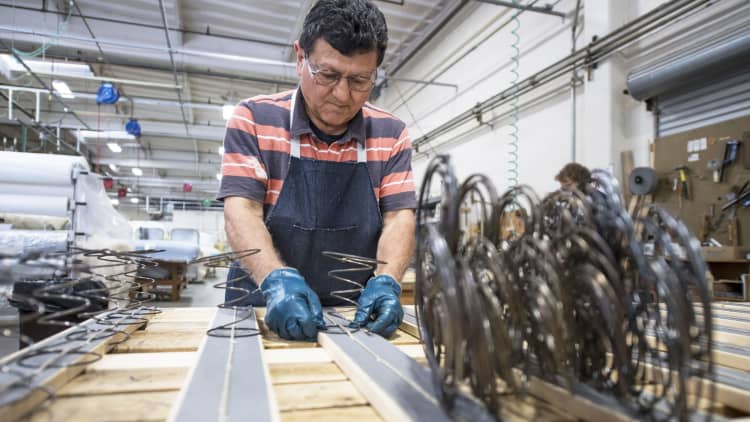
The United States is falling short on a number of critical measures of competitiveness, with small businesses bearing the most pain due to the shortfalls, a new study by Harvard Business School finds.
The end result is the country is failing to promote prosperity among all Americans, according to Harvard's fifth-annual U.S. Competitiveness Project report.
Professor Michael Porter, co-chair of the Competitiveness Project, said Thursday the weakness extends beyond the current economic recovery from the financial crisis. According to the study, America's performance peaked in the late 1990s.
"We're stalled in America. Our performance, economic performance, on many metrics is worse than we've seen in many generations. I mean not five years. I mean 10, 15, 20, 30 years," he told CNBC's "Squawk Box."
The study, which draws on surveys of Harvard Business School alumni and the general public, finds the United States retains key strengths in areas like higher education, entrepreneurship and capital markets. But those advantages have been offset by weaknesses in the corporate tax code, early and secondary education, infrastructure, the political system and health care.
Those problems have gone unsolved because Washington has failed to have an honest conversation about addressing them, and the country lacks a cohesive economic strategy, particularly at the federal level, the study concludes.

According to Porter, that may not change. He said the project gave up on assessing Hillary Clinton and Donald Trump's potential impact on competitiveness because their plans are not clear enough.
"Their policies are so fragmented, so changing that we really can't understand what the strategy is," he said.
The study also found fault with companies for failing to improve the business environment in the regions where they operate. It said they must contribute through skills development, supporting public education and partnering on economic development programs.
The combined failure of the political system and business class has had a greater negative impact on small business, Porter said. That is because large businesses can inoculate themselves from the weaknesses in American competitiveness by virtue of their size, Porter explained.
"If we have a bad tax policy, they have a global tax structure that works around it. If they can't find the right skills for their industry in America, they set up a facility in Latvia," he said.
"The real pain is hitting small business."
Pessimism is deepening, the study found. Fifty percent of business leaders surveyed said they thought the situation would worsen in the next three years, while 30 percent expect improvement and 20 percent forecast no change.


